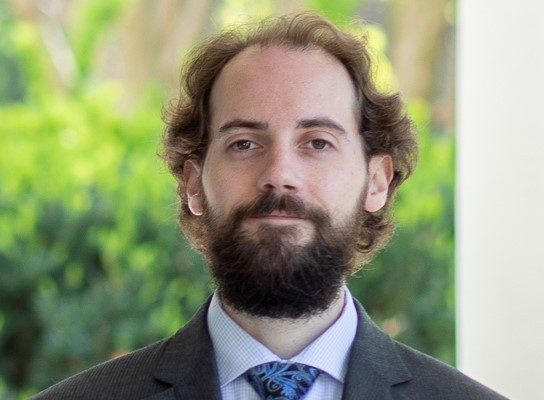
Award-winning teacher fosters ‘intellectualism’ among his Piscataquis County students
Family history and influential high school teachers led Joe Hennessey to a career in education.
At 31, he’s off to an influential start of his own.
The English teacher at Piscataquis Community High School in Guilford has followed up his selection as Maine’s 2019 Teacher of the Year by being named the state’s recipient of the 2020 National University System Sanford Teacher Award.
Sanford Teacher Award winners were selected in all 50 states and the District of Columbia for demonstrating high levels of inspirational teaching practices by engaging students, building student confidence, giving students a voice, motivating students to succeed and creating an inclusive environment.
Each state winner receives $10,000, and Hennessey now is a finalist for the national Sanford Teacher Award, which includes a total prize of $50,000.
“Your field of vision has to be broad enough to take in what’s in front of you, and that’s what I’ve tried to do serving as a facilitator in my classroom and when we take kids on field trips,” Hennessey said of his teaching style. “We’re presenting models and new paradigms of thinking that they may or may not get exposure to on a daily basis.”
Hennessey teaches American literature, world literature, advanced placement literature and composition, as well as developing and implementing interdisciplinary courses that emphasize active reading strategies, analytical writing, vocabulary and grammar application exercises and formal public speaking.
Hennessey also serves on the school’s Academic Council, Leadership Team and Scholarship Committee and is the Debate Club adviser.
“Underlying everything else that we do, the key role of education ought to be to foster intellectualism in students,” he said. “I think intellect is the most equitably distributed capacity that we have in humanity. We don’t all have the same allocation of resources at home or at school, but one thing we all have is the ability to think and reflect deeply.”
Hennessey grew up in Colorado but spent summers as a youth on the Blue Hill peninsula. One of his grandfathers was on the faculty at Maine Maritime Academy in Castine, among several relatives with educational connections.
“Education in my household was always held up as this very important form of public service,” he said. “I’ve viewed myself as a public servant throughout my career, and I view education as the essential public service, the one that underpins everything else that comes out of the public sphere.”
After graduating from the University of Colorado at Boulder, Hennessey remained in that state as a teacher until six years ago, when he decided to return to Maine on a full-time basis and landed at Piscataquis Community High School, which has 180 students in grades nine through 12.
“One thing that’s been so pleasant and affirming for me just working in this community is that, whether or not the general public totally understands where you’re going with your curriculum, they inherently understand the value of education,” he said.
Hennessey is not the only member of the school’s English faculty to be recognized for classroom excellence this year. Jessica Gregory recently was named the Department of Education’s Piscataquis County Teacher of the Year.
Hennessey and his colleagues faced a different educational challenge this spring when the COVID-19 pandemic forced schools to close and instruction to be done online despite broadband infrastructure being limited in parts of the rural school district.
“That’s another barrier to access that has to be circumvented,” he said, “but rather than resigning ourselves to a quarter of the year being gone, the district as a whole went to great lengths to continue to provide essential and wraparound services to all of these students in spite of the remote learning situations.”
Hennessey hopes traditional classroom education will return this fall but believes the early impact of remote learning has been revealing.
“It’s clear to me, and I think to everyone else in our community, that the schools provide so much more than academic learning and that they’re more community pillars than they are brick-and-mortar houses of academic learning,” he said.